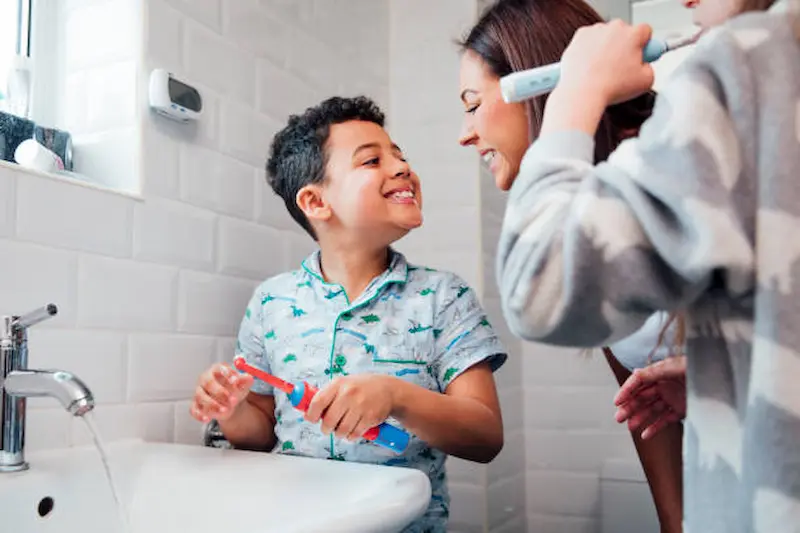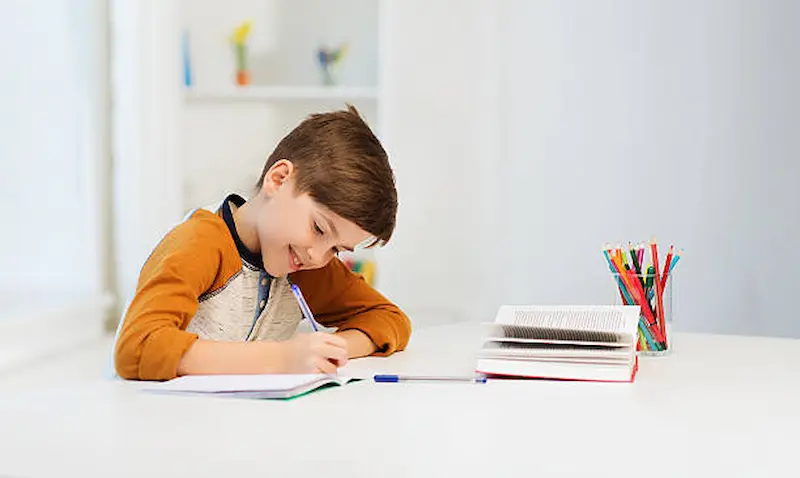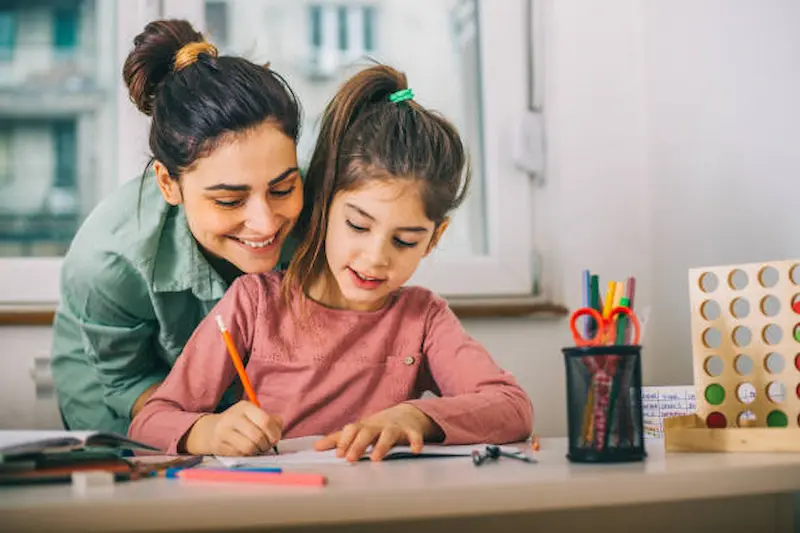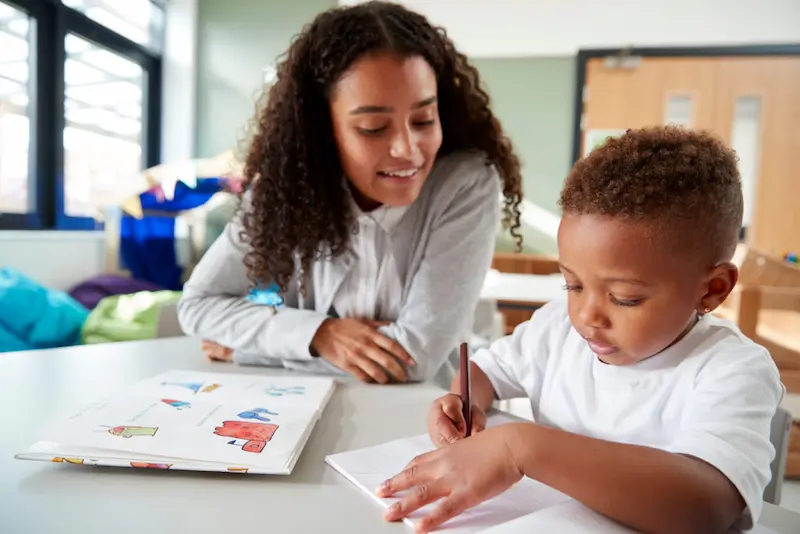Daily routines serve as an essential framework in a student’s life, offering a roadmap for success. Recognizing the significance of structured habits, this discussion delves into the vital role that daily routines play in boosting academic performance. By establishing consistent patterns of behavior, these routines not only optimize time management but also provide a pathway to enhanced learning, discipline, and overall student well-being.
In this blog, we explore effective daily routines for students that can enhance productivity and overall well-being. Structuring your day with a balanced mix of focused study sessions, physical activity, and mindful breaks can lead to improved concentration and academic success.
Table of contents
- Setting the Foundation: Morning Routines
- Energising the Body: Exercise and Movement
- Maximising Study Time: Effective Study Routines
- The Power of Breaks: Incorporating Rest and Relaxation
- Enhancing Focus and Productivity: Limiting Distractions
- Cultivating Good Habits: Time Management Beyond Studying
- Balancing Screen Time: Incorporating Offline Activities
- Conclusion
- Frequently Asked Questions ( FAQs)
Setting the Foundation: Morning Routines

Morning routines are a crucial part of setting the tone for a successful and productive day. By incorporating habits like waking up early, practising mindful meditation, and having a nutritious breakfast, you can create a foundation for improved well-being and increased efficiency throughout the day. Cultivating good habits for kids, such as following consistent morning routines, sets a positive tone for the day ahead.
A. Waking Up Early: The Benefits and Tips
Waking up early offers several benefits for your physical, mental, and emotional well-being:
- Peaceful Start: Early mornings are usually quieter and less hectic, providing you with a peaceful and calm environment to begin your day.
- Time for Yourself: Waking up early gives you extra time to engage in activities that you might not have time for later in the day, such as exercise, reading, or pursuing a hobby.
- Increased Productivity: Studies have shown that early risers tend to be more productive and have better time management skills. Exploring the pages of books for kids opens a gateway to limitless possibilities and endless learning
- Improved Mental Health: Establishing a consistent wake-up time can help regulate your body’s internal clock and improve your overall sleep quality, leading to better mental health.
B. Mindful Meditation to Start the Day Right
Mindful meditation is a powerful practice that can help you start your day with a clear and focused mind. Engaging in mindfulness activities for kids within team-building settings not only enhances soft skills like empathy and active listening but also cultivates a sense of calm and focus. Here’s how you can incorporate it into your morning routine:
- Find a Quiet Space: Choose a quiet and comfortable spot where you can sit or lie down without distractions.
- Focus on Your Breath: Close your eyes and take slow, deep breaths. Pay attention to the sensation of each inhale and exhale.
- Stay Present: As thoughts arise, acknowledge them without judgment and gently bring your focus back to your breath. Mindfulness is about being present in the moment.
- Set an Intention: Before concluding your meditation, set a positive intention for your day. This can help you frame your mindset in a constructive way.
C. A Nutritious Breakfast for Sustained Energy
Breakfast is often referred to as the most important meal of the day, as it provides your body with essential nutrients and energy to kick-start your morning. A kitchen set for kids allows them to playfully prepare a nutritious breakfast, setting the stage for a day filled with sustained energy and vitality.
- Balance Macros: Aim for a breakfast that includes a balance of carbohydrates, proteins, and healthy fats. This combination helps provide sustained energy throughout the morning.
- Whole Foods: Choose whole, unprocessed foods such as whole grains, lean proteins, fruits, and vegetables. These foods are rich in nutrients and fiber.
- Hydration: Start your day with a glass of water to rehydrate your body after a night of sleep.
- Plan Ahead: Prepare breakfast items the night before to save time in the morning. Overnight oats, smoothie packs, or pre-cut fruits are convenient options.
Energising the Body: Exercise and Movement

Regular exercise and movement are essential for maintaining physical health, boosting energy levels, and promoting overall well-being. Combining mindfulness meditation for kids with exercise and movement creates a holistic approach to nurturing both their mental and physical well-being. Engaging in various forms of exercise can help you feel more energised, improve mood, and increase your body’s strength and flexibility.
- The Role of Exercise in Boosting Brain Power
Exercise is not only beneficial for your body but also has a profound impact on brain health and cognitive function. Here’s how exercise can boost brainpower:
Increased Blood Flow: Physical activity increases blood flow to the brain, delivering oxygen and nutrients that support brain function.
Neurotransmitter Production: Exercise stimulates the production of neurotransmitters like dopamine and serotonin, which are associated with improved mood, focus, and memory.
Stress Reduction: Physical activity helps reduce stress by releasing endorphins, which are natural mood elevators that promote relaxation and a positive outlook.
Enhanced Cognitive Function: Studies suggest that exercise can improve cognitive functions such as attention, problem-solving, and decision-making.
- Strength Training
Strength training, also known as resistance training or weightlifting, involves using resistance to build muscle strength, endurance, and overall physical fitness. Incorporating mindfulness meditation into kids exercise routines enhances their awareness of body and breath, promoting a deeper connection between mind and movement. Some benefits of strength training include:
Increased Muscle Mass: Strength training helps build lean muscle mass, which can boost metabolism and support healthy weight management.
Bone Health: Weight-bearing exercises promote bone density and reduce the risk of osteoporosis.
Functional Fitness: Strong muscles improve your ability to perform everyday tasks with ease.
Metabolic Benefits: Muscle tissue burns more calories at rest than fat tissue, contributing to a more efficient metabolism.
Maximising Study Time: Effective Study Routines

Creating an effective study routine is essential for optimizing your learning and retaining information. A well-structured study routine can help you stay focused, manage your time efficiently, and achieve better academic outcomes. By teaching kids responsibility, we equip them with essential skills like planning, organization, and time allocation, crucial for making the best use of their study time. Here are some tips for maximizing your study time:
1. Set Clear Goals:
Define specific study goals for each session. Knowing what you want to accomplish will help you stay on track and motivated.
Break down large goals into smaller, manageable tasks to make your study sessions more achievable.
2. Create a Productive Study Environment:
Choose a quiet, organised, and well-lit space where you can concentrate without distractions.
Keep all necessary study materials, such as textbooks, notebooks, and stationery, within reach.
3. Active Learning Strategies:
Engage with the material actively by summarising, questioning, or teaching the concepts to yourself or someone else.
Use mnemonic devices, visualisation, and associations to help remember complex information.
4. Prioritise Difficult Topics:
Start your study session with the most challenging subjects when your mind is fresh and alert. Prioritising difficult topics while teaching kids kindness includes addressing subjects like bullying and teaching them how to stand up for what’s right.
5. Avoid Multitasking:
Focus on one task at a time. Multitasking can reduce your efficiency and comprehension.
The Power of Breaks: Incorporating Rest and Relaxation

Recognizing the significance of rest and relaxation is paramount in maintaining a well-rounded and productive lifestyle. Incorporating strategic breaks into your routine not only reinvigorates your mind and body but also enhances overall efficiency. By integrating rest and relaxation practices, stress management for kids becomes a comprehensive approach that nurtures both their physical and mental well-being.
By stepping away from tasks, engaging in enjoyable activities, or practising mindfulness, you allow your brain to recharge, creativity to flourish, and stress to dissipate.
Enhancing Focus and Productivity: Limiting Distractions
In a world filled with constant stimuli, mastering the art of limiting distractions is a pivotal skill for optimising focus and productivity. Creating a conducive environment that minimises interruptions, silencing digital notifications, and adopting time management techniques can significantly amplify your ability to concentrate on tasks at hand. Positive thinking for kids plays a vital role in enhancing their focus and productivity by teaching them to limit distractions and stay on track with their goals.
By strategically taming distractions, you empower yourself to delve deep into your work, accomplish more in less time, and achieve a heightened state of flow where your efforts are maximised and your goals are within reach.
Cultivating Good Habits: Time Management Beyond Studying

Effective time management extends beyond the realm of studying, shaping a well-rounded and fulfilling student experience. Cultivating good habits involves allocating time not only for academic pursuits but also for hobbies, social interactions, and personal growth. Engaging in memory games for kids goes beyond fun; it also plays a role in cultivating good habits, like effective time management beyond studying.
By thoughtfully structuring your day, setting priorities, and embracing routines that encompass a diverse range of activities, you create a harmonious balance that nurtures both your intellectual and emotional well-being.
Balancing Screen Time: Incorporating Offline Activities
In a digitally connected world, finding equilibrium between screen time and offline activities is paramount for maintaining a healthy and enriching lifestyle. Striving for balance entails stepping away from electronic devices and immersing oneself in offline pursuits such as outdoor adventures, creative endeavours, and face-to-face interactions. Engaging in art projects for kids is a wonderful way to strike a balance with screen time, offering them creative and fulfilling offline activities.
By consciously setting boundaries and dedicating time to activities that nourish the mind and body, you foster a sense of presence, stimulate creativity, and cultivate meaningful connections.
Conclusion
Effective Daily Routines for Students offers invaluable insights and practical strategies to enhance your academic performance and overall well-being. By embracing morning rituals that nourish both body and mind, harnessing the power of mindful meditation, and engaging in regular exercise, you lay a strong foundation for success.
Master Your Day: Effective Daily Routines for Students empowers you to take control of your journey, ensuring each day is a stepping stone toward your aspirations.
Explore the BrightCHAMP blog page to discover educational insights, tips, and strategies to enhance your child’s learning experience.
Elevate your child’s learning journey with BrightChamps, where young minds embark on a transformative adventure through robotics, financial education, and coding courses.
Frequently Asked Questions ( FAQs)
A1. A daily routine can enhance a student’s academic performance by promoting consistency, time management, and focused study habits.
Q2. Is it necessary to follow the same routine every day?
A2. While consistency is beneficial, flexibility within a routine allows adaptation to varying demands and optimal productivity.
Q3. Can a routine help reduce stress and anxiety?
A3. Yes, a routine can contribute to stress and anxiety reduction by providing structure and allocating time for relaxation and self-care.
Q4. Should weekends be a part of the routine?
A4. Integrating weekends into a routine can offer balance, leisure, and continued learning, fostering a sustainable lifestyle.
Q5. Can daily routines positively impact students’s overall well-being?
A5. Certainly, daily routines can positively impact students’ overall well-being by cultivating healthy habits, reducing stress, and fostering a sense of accomplishment.


 We are an army of educators and passionate learners from BrightChamps family, committed to providing free learning resources to kids, parents & students.
We are an army of educators and passionate learners from BrightChamps family, committed to providing free learning resources to kids, parents & students.













